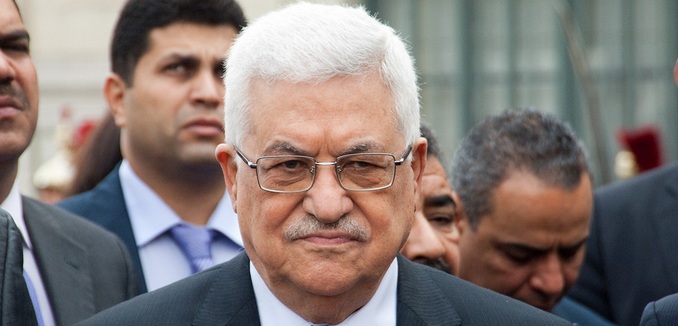Palestinian Authority President Mahmoud Abbas was unanimously chosen to lead the Fatah party for another five years at a convention that excluded his political opponents, further strengthening his hold on the party while cementing the rifts in the Palestinian polity.
Excluded from the conference were supporters of Mohammed Dahlan, an Abbas rival and former Gaza security chief now living in exile in the United Arab Emirates. Many of Dahlan’s supporters have been purged from Fatah or arrested.
Dimitri Diliani, who had been elected to Fatah’s Revolutionary Council in 2009, told The Times of Israel that he wasn’t invited to this year’s conference because he and other opponents of Abbas “bring a different voice.”
“To me, the story is who is not at the conference,” Grant Rumley, a research analyst at the Foundation for Defense of Democracies, told the Times. “This conference will formalize the split within [Abbas’] own party.”
The conference, which was held for the first time in seven years, demonstrated Abbas’ continued grip on Fatah and the PA, which is suffering from infighting, financial troubles, and plummeting popularity. But it did not lay out a succession plan for Abbas, who is 81 years old and was recently hospitalized with heart problems. The PA cancelled planned municipal elections for this month that could have clarified the succession issue. Currently, if Abbas is incapacitated or leaves power, leadership of the PA would temporarily fall to Speaker of the Palestinian Legislative Council Aziz Dweik, a member of Hamas.
Polls show that many Palestinians want Abbas to resign. He was elected in 2005 to a four-year term and has ruled by decree since 2009. Abbas established a new court in April to further consolidate his power.
The Times of Israel reported in September that the PA originally saw the now-cancelled municipal elections as a first step toward holding presidential elections within two years, which would have legitimized the rule of Abbas or his successor. Candidates from both parties complained that they were being harassed by authorities under control of their rivals before the elections were cancelled, likely to avoid an embarrassing Fatah loss.
Rumley warned in May that the West’s refusal to challenge the growing corruption and autocratic rule under Abbas “could have a devastating effect on the long- prospects for a viable Palestinian state.”
[Photo: Olivier Pacteau / Flickr ]




